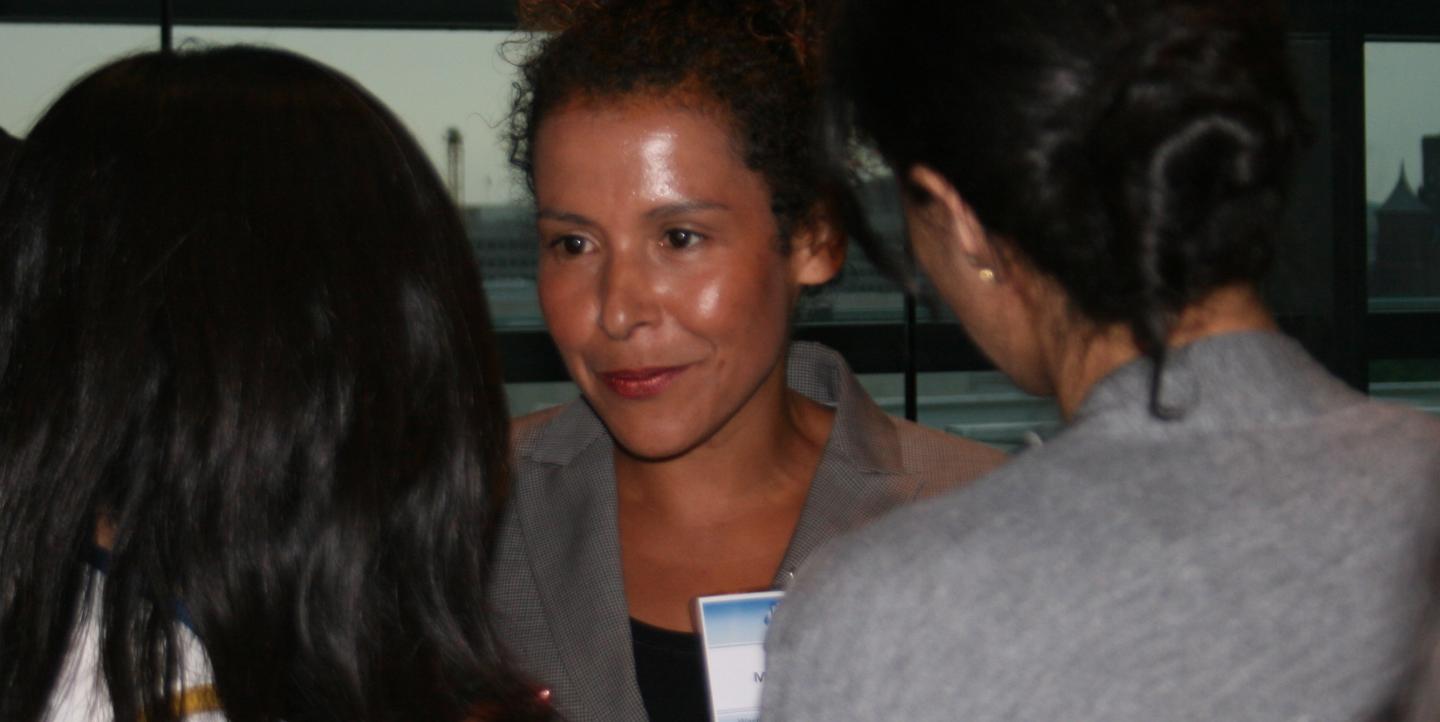Crowded into the back two rows of the Newseum’s conference room Sunday night, a group of Pakistani journalists hoped the events of World Press Freedom Day in Washington, D.C., would better equip them to report in an environment of militancy and restriction.
Among them was Adnan Rashid, a public radio producer from Swat, Pakistan, who said militants have mentioned him by name as “misguiding the public.” Lahore-based television correspondent Shumaila Jaffery said journalists have committed suicide because they weren’t paid. The government restricts what they can report and some media owners self-censor, they said.
Newseum Trustee and author Bette Bao Lord opened the three-day conference by praising journalists for enduring conditions such as the ones Rashid and Jaffery face, and declaring, “Press freedom is hope.”
This year’s World Press Freedom Day conference, held for the first time in the United States, kicked off Sunday evening to a standing-room-only crowd at the Newseum, Washington’s museum of news. Opening speakers honored fallen journalists and emphasized how new media have opened information channels while also triggering tighter limitations on freedom of expression.
“In this rapidly changing world, paths to press freedom just unthinkable yesterday may suddenly appear,” she said, illustrating the “harvest” of information sown from the actions of a poor Tunisian peddler who set himself afire and launched a revolution.
On a recent trip to the Middle East, Judith McHale, the State Department’s undersecretary for public diplomacy and public affairs, said Tunisian reporters asked her group how to question politicians.
“They have never before been able to perform this basic function of journalism,” she said, but upcoming elections will give the country’s press corps a chance to exercise newfound freedoms.
Stephen King, of the philanthropic investment firm Omidyar Network, described ventures such as the crowdsourcing platform Ushahidi and the citizen media network Global Voices that use new media to promote government transparency.
Carl Gershman, president of the National Endowment for Democracy, highlighted the “sharpening contradiction” between closed states that strengthen control over new media and increasingly open societies where information flows freely. He honored the four widows of fallen journalists present, which included the wives of Daniel Pearl and Guillermo Cano.
World Press Freedom Day, which the United Nations established in 1993, celebrates the fundamental principles of press freedom, evaluates press freedom globally, defends independent media and honors fallen journalists.
This year marks the 20th anniversary of the Windhoek Declaration, named for the Namibian capital where it was signed. The declaration, which followed a conference on promoting free press in Africa, asserted the significant role an independent press plays in democratic and economic development.
The Washington conference will focus on the theme, “21st Century Media: New Frontiers, New Barriers.” Three plenary sessions will address the status of press freedom today, censorship in the digital age and new media’s role in expanding information access.
Thirteen breakout sessions will delve deeper into the shifting digital landscape, discussing gender challenges, youth media consumption, legal battles, evasion tactics, new business models, investigative reporting and journalistic ethics. Speakers include leaders from press organizations, government officials, academics and journalists from around the world.
The United Nations Education, Scientific, and Cultural Organization (UNESCO) organizes World Press Freedom Day commemorations to celebrate the fundamental principles of press freedom; to evaluate press freedom; to defend the media from attacks on their independence and to pay tribute to journalists who have lost their lives in the line of duty. For complete information on the 2011 World Press Freedom Day global conference in Washington DC, see www.wpfd2011.org (in English).

